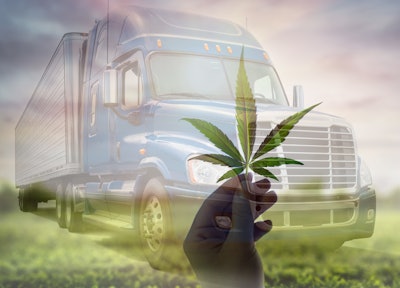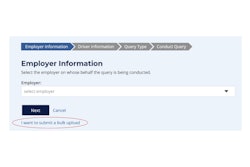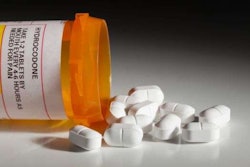
While marijuana is still considered an illegal Schedule I drug under federal law per the Controlled Substances Act, the United States Congress recently came close to passing a bill which sought to decriminalize cannabis on a national level.
For those in the trucking industry – which is highly regulated by the federal government – it's important to be aware of how (if at all) the changes in federal law on marijuana use may affect the operation of a commercial fleet.
By way of background, then-Senator Kamala Harris was one of the sponsors of the July 2019 Marijuana Opportunity Reinvestment and Expungement (MORE) Act. This bill sought to, among other things, decriminalize marijuana (establishing fines for infractions, as opposed to jail time), expunge certain prior marijuana-related convictions, and set up a fund to assist with substance abuse treatment. The MORE Act was passed in the Democrat-controlled House of Representatives in early December 2020 but ultimately died in the Republican-controlled Senate later that month.
With the former senator now being better known as Vice President Harris, it is anticipated that a bill similar to the MORE Act will be introduced in the coming months.
Senate Majority Leader Chuck Schumer (D-NY), Senator Corey Booker (D-NJ), and Senator Ron Wyden (D-OR) recently announced that they were in the process of drafting a new marijuana reform bill.
If the bill comes to fruition, it is anticipated that it will, once again, pass the Democrat-controlled House. However, with the Senate currently reflecting a 50-50 split among party seats, Harris, who also serves as President of the Senate, has the ability to cast a tie-breaking vote should senators vote on the bill along party lines. It is all but certain that Harris will vote in support of the bill, sending it to President Biden’s desk for final approval.
President Biden appears to support the federal decriminalization of marijuana by shifting it to a Schedule II substance under the Controlled Substances Act, making it more readily available for medicinal use and subject to Food and Drug Administration oversight. He does not currently support the legalization of marijuana – a trend that many states have recently undertaken. With that in mind, it is very possible that a bill, which is akin to the MORE Act, will be passed in the near future, making marijuana somewhat legal on a federal level.
With regard to the trucking industry, the Department of Transportation (DOT) currently prohibits drivers from using any sort of Schedule I substance, which includes all forms of marijuana, and subjects drivers to drug testing for all substances listed under Schedule I.
While it remains uncertain as to whether recategorizing marijuana as a Schedule II substance would allow for certain marijuana use to be deemed acceptable in the eyes of the DOT (such as medicinal use), it is doubtful that decriminalization will change its stance on marijuana use among truck drivers because they hold a “safety sensitive” position (like pilots, bus drivers, train engineers, and others).
Notably, in October 2009 – after the Department of Justice issued guidelines to federal prosecutors with respect to the pursuit of cases involving the use of medicinal marijuana – the DOT issued a Drug and Alcohol Policy and Compliance Notice, which reiterated that no marijuana use was acceptable under any circumstances due to public safety concerns.
There has been no indication that this policy would change if marijuana was formally decriminalized under federal law, with even the MORE Act allowing the Secretary of Transportation to continue to prohibit marijuana use if deemed to be a risk to transportation safety.
Regardless of whether or not marijuana’s categorization is ultimately changed by the federal government, trucking companies also need to be aware of how the DOT views cannabinoid, or CBD, use among drivers.
A byproduct derived from the cannabis sativa plant, countless CBD products have recently come to market to assist those who are suffering from anxiety, cognitive issues, involuntary movement disorders and pain. Such products are not regulated by the Food and Drug Administration and may contain a small amount of tetrahydrocannabinol (THC) – the primary psychoactive component of marijuana.
Given the DOT’s marijuana use prohibition, many drivers turn to over-the-counter CBD products for medicinal purposes. Such usage can ultimately be a problem (and lead to a positive finding for marijuana use in a drug test) because there have been numerous occasions where the unregulated CBD industry has brought products to market which contain a higher level of THC than is listed on the product’s label.
In other words, if a driver unknowingly uses a CBD product, which contains a THC level in excess of 0.3%, he/she will test positive for marijuana and will be forced from the road, subjected to substance abuse counseling, and kept out of a truck until a negative test is obtained.
The DOT does not make any exceptions for drivers who fail a drug test by merely using CBD products or are otherwise under physician supervision with respect to the use of products that contain THC.
Those in the trucking industry should be aware that – in the eyes of the federal government, and despite the potential legalization or decriminalization of marijuana on a national level – it is unlikely that the DOT’s zero-tolerance policy on marijuana product use for truckers will change at any point in the near future.
Jeffrey L. Oster is a partner with the law firm of Vaughan Baio & Partners who represents various commercial motor vehicle clients in lawsuits filed in Pennsylvania, New Jersey, and Maryland. He can be reached at [email protected].











